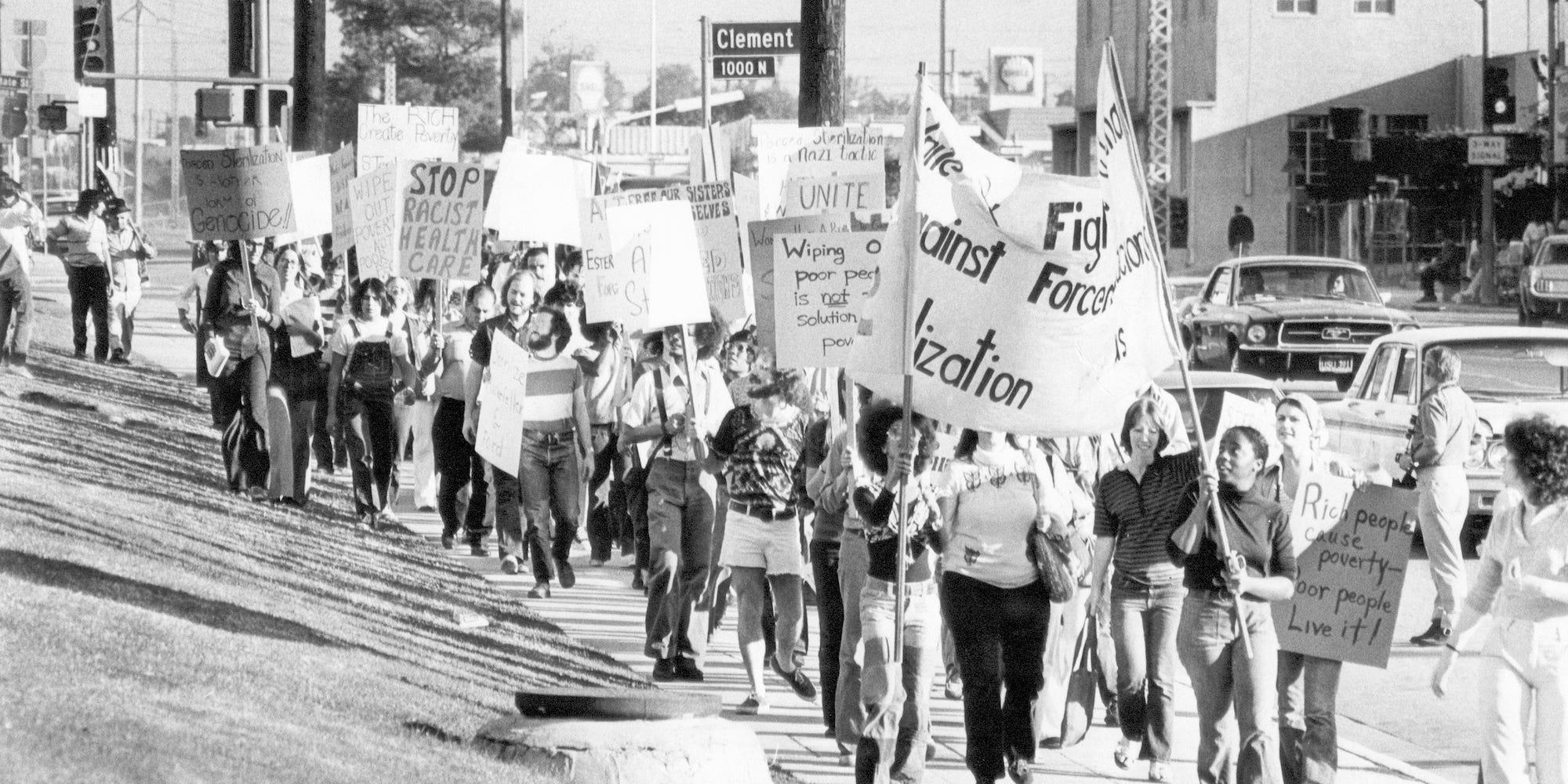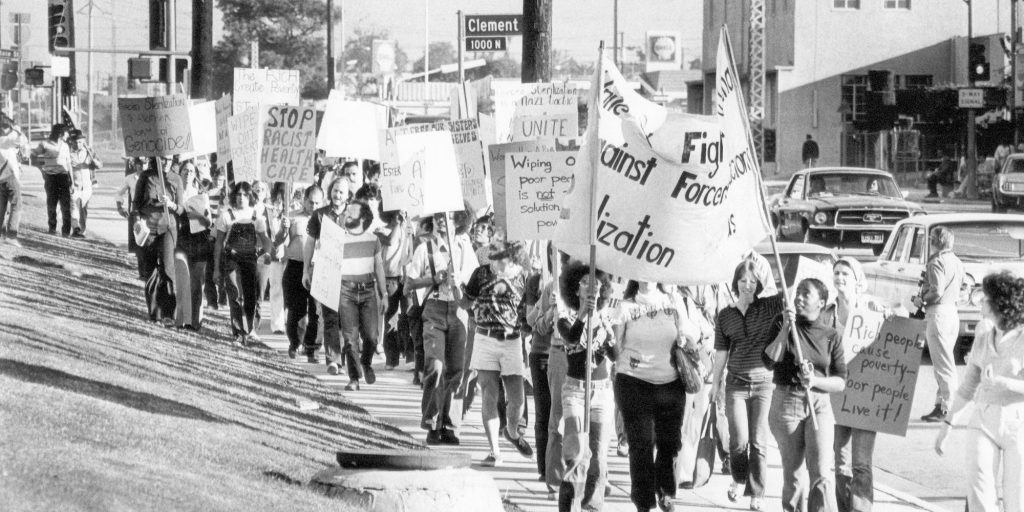
Los Angeles Times via Getty Images
- Between 1909 to 1979, 20,000 people were sterilized as part of California's eugenics program.
- Nearly 150 female inmates were forcibly sterilized in the early 2000s.
- California will now pay reparations to those who were sterilized in prison.
- Visit Insider's homepage for more stories.
California passed a $7.5 million fund for reparations of those forcibly sterilized in the state both under old eugenics laws from 1909 and 1979 and more recently in prisons, Reuters reported.
The Forced or Involuntary Sterilization Compensation Program was signed on Monday by Governor Gavin Newsom as part of a state budget deal.
Kelli Dillon, a survivor of forced sterilization in prison, said the passage of the bill was "overwhelming."
"At first, I was just in disbelief because it's been a process, a journey that has been taking place for over 20 years of my life," Dillon told Insider.
Sterilized without her knowledge more than 20 years ago while in prison, Dillon spent years advocating for the practice to end. That effort was told in the documentary "Belly of the Beast."
While incarcerated, Dillon began experiencing abdominal pain and was told it could be cancer during a medical check-up. She agreed to be taken out of the prison for surgery but only agreed to have anything removed if cancer was found. Following the operation, she was told everything was normal but began to get hot flashes, her period stopped, and she lost weight not long after.
She contacted Cynthia Chandler, a lawyer with Justice Now, who told her to get her medical records, which showed she had been sterilized without her knowledge. Dillon, who was imprisoned for the murder of her abusive husband, whom she had two kids with, was devastated.
Dillon noticed other women, mostly Black or Latino, returning from operations clutching their abdomens who told her they were also told they had cancer or needed other reproductive operations. With Chandler's help, they identified other women who were sterilized, but many did not want to come forward for fear of retaliation.
"It's okay to be shocked, devastated, to feel depressed. And so it's okay to scream. It's okay to cry because it's going to be a lot to understand that that's the reason why you've been trying to have a child or why your body has been feeling weird," Dillon said.
"To come to find out that someone did this to you - it's devastating and you have a right to be in your emotions. Even in your mental space, that may not be healthy at the time. You have every right to be there." she added.
California's bill addresses the state's history with eugenics, a practice stopping people from reproducing due to "undesirable traits." The practice began in Indiana in 1907 but spread to 30 states including California, which between 1909 to 1979 forcibly sterilized 20,000 people, mostly those with mental illness or disabilities.
More recently, those incarcerated, like Dillon, were sterilized. In 2013, The Center for Investigative Reporting found that 148 female inmates were sterilized by tubal ligation between 2006 to 2010 without required state approvals.
In 2014, former Governor Jerry Brown banned sterilization and required second opinions for patients who may need to undergo sterilization for a medical reasons, and required counseling about the permanence of the procedure.
Both Dillon and Chandler said while reparations are a good step forward, the state and country must learn from the history of eugenics and their treatment of minorities.
"The harm that happened to people in California's prisons, more contemporaneously happened because of the lack of knowledge and remembrance of the harms of eugenics from all the way through the 1970s. It was as if the word eugenics disappeared from our discourse, let alone the understanding of its harm," Chandler said.
A spokesperson for Newsom's press office told Insider that the governor "is glad to have this opportunity to right this historic wrong. He recognizes that no amount will be enough to heal the wounds caused by this practice, but this is an important step."
The Department of Corrections did not respond to Insider's request for comment at the time of publication.

